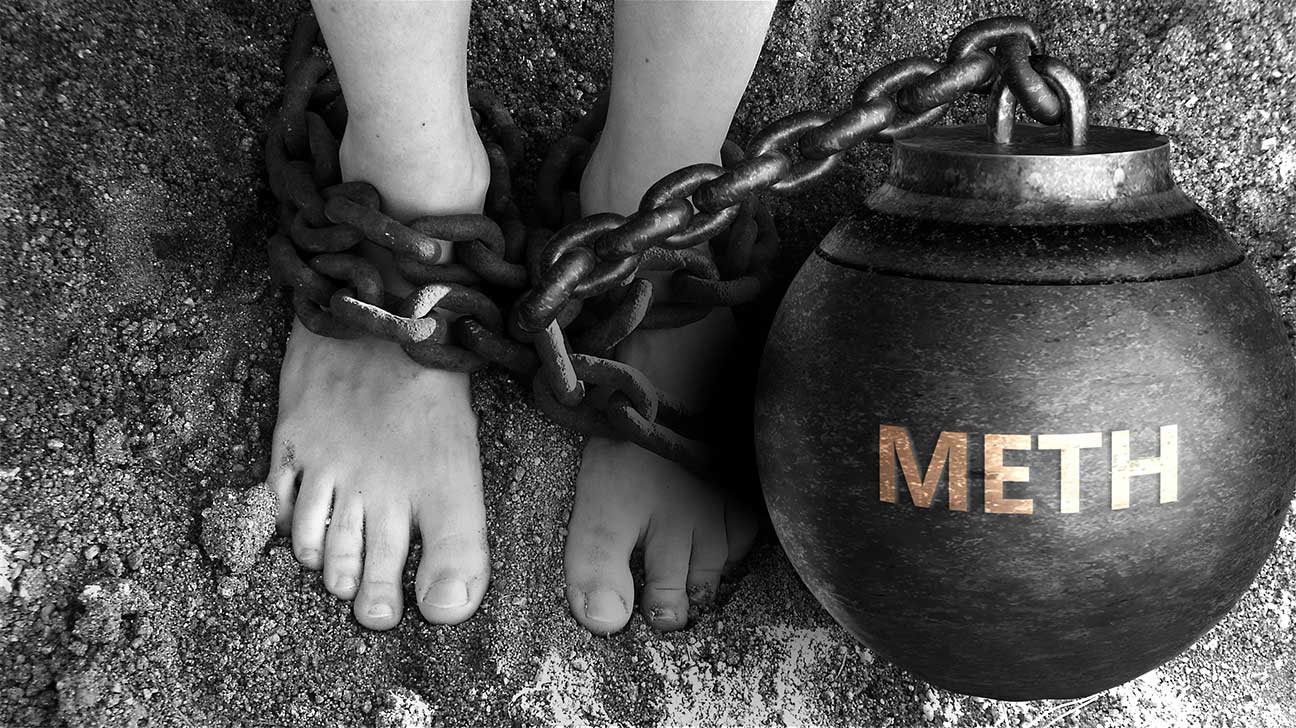
Meth is a highly addictive and powerful stimulant drug that can be snorted or smoked. An estimated 500,000 people in the U.S. are currently battling methamphetamine dependence.
People facing a substance use disorder involving meth can get help in a detox program where medical professionals can monitor withdrawal in a safe and comfortable environment.
Without intervention, people who abuse meth are at a high risk of developing long-term health conditions, overdose, and death.
Signs Of Meth Addiction
When used, methamphetamine creates an intense and euphoric high. Over time a person will develop a tolerance level to the drug and will need to take increasingly higher doses to get the same effects.
Signs of meth addiction include:
- withdrawal from family and friends
- bursts of energy followed by crashes
- dramatic weight loss
- mood swings and erratic behavior
- change in appearance
- financial problems
- risk-taking behavior
- neglecting work, family, or school responsibilities
- neglect of hygiene
- intense cravings
- increased tolerance
After prolonged use, the body will develop a physical and emotional dependence on meth, so if the substance is suddenly removed from the system, the person will experience withdrawal symptoms.
Meth Withdrawal Symptoms
Meth and crystal meth withdrawal is a challenging but necessary step toward recovery. Below are some of the symptoms of meth withdrawal.
Symptoms of meth withdrawal include:
- fatigue
- depression
- anxiety
- agitation and irritability
- increased appetite
- vivid nightmares
- headaches and muscle aches
- tremors
- suicidal thoughts
- intense cravings
- lack of focus
- poor memory
In some cases, particularly with severe meth addiction, people may experience symptoms of psychosis such as hallucinations or delusions during withdrawal.
Meth withdrawal is physically and emotionally difficult. Seeking professional help at a detox facility and support from loved ones can help ease the transition.
Meth Withdrawal Timeline
Understanding the timeline of methamphetamine withdrawal can offer people a clear perspective on what to expect.
Acute Withdrawal Phase
The first 24 to 72 hours since last use are marked by intense cravings, fatigue, mood swings, and other psychological symptoms. Physical discomfort may also be prevalent.
First Week
Withdrawal symptoms will peak before the end of the first week. Cravings will still be strong, and people will feel increased agitation and anxiety and disrupted sleep patterns.
First Month
By the end of the first month, cravings begin to lessen while psychiatric issues may emerge. Specialized psychiatric care for severe depression, anxiety, and psychosis may be required.
Post-Acute Withdrawal Syndrome (PAWS)
PAWS symptoms may linger for the weeks and months following detoxification. These may include anxiety, depression, mood swings, and low energy levels.
Detox Process For Meth Addiction
Attempting to detox from meth addiction without professional guidance can be dangerous. Medical support ensures safety during any physical and psychological issues that may arise.
Meth detox process:
- medical assessment — A thorough medical assessment is conducted to evaluate physical and mental health, including any co-occurring disorders that may require specialized care.
- stabilization period — Medical staff works to stabilize the person, addressing health concerns and providing medications to help manage withdrawal symptoms. Medications may include antidepressants and pain meds.
- nutrition and hydration — Nutritional deficiencies are common in meth abuse. Proper nutrition and hydration are provided as they are essential in the body’s recovery process.
- psychiatric support — Counseling and therapy may be provided for emotional support and helping clients develop coping strategies.
- transition — Once stabilized, clients will often transition into an inpatient or outpatient rehab program where they can continue getting treatment for the underlying causes of addiction.
While there are not currently any FDA-approved medications used solely in the treatment of meth withdrawal, there are several drugs that may be effective in easing uncomfortable symptoms during the withdrawal process.
Meth Addiction Treatment Programs
Attending a rehab program for methamphetamine addiction is highly effective in reducing the risk of relapse and achieving long-term sobriety.
Treatment options may include:
- dual diagnosis treatment
- cognitive behavioral therapy (CBT)
- counseling
- support groups for drug addiction
- 12-step programs
- general healthcare services
For additional information about meth use and recovery services, you can contact the treatment facility directly.
Find A Substance Abuse Treatment Center Today
Reach out to DetoxRehabs.net today. Our team can help you or your loved ones find a recovery center that works for you.
Article Sources- National Institute on Drug Abuse (NIDA) — Treatment and Recovery
https://nida.nih.gov/publications/drugs-brains-behavior-science-addiction/treatment-recovery - National Institute on Drug Abuse (NIDA) — What treatments are effective for people who misuse methamphetamine?
https://nida.nih.gov/publications/research-reports/methamphetamine/what-treatments-are-effective-people-who-misuse-methamphetamine - Substance Abuse and Mental Health Services Administration (SAMHSA) — Medications for Substance use Disorders
https://www.samhsa.gov/medications-substance-use-disorders


